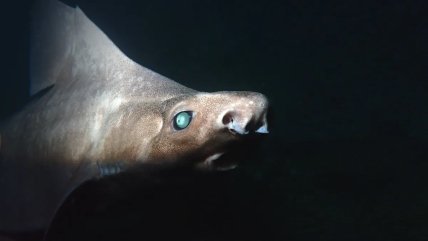A rare mutant white shark was caught off the coast of Albania (photo).
An Oxynotus centrina shark was caught in the territorial waters of Albania in the Adriatic Sea. This species is classified as endangered. The shark was captured at a depth of approximately 200 meters and surprised observers with its unique appearance.
This shark exhibits a rare genetic condition known as leucism, which disrupts melanin production. Unlike albinism, individuals with this genetic condition have normally colored eyes, but they can be completely white. Scientists believe that this shark is the first of its kind to exhibit such a genetic disorder, reports Live Science.
The typical coloration of these sharks ranges from dark gray-brown to completely black, which aids them in hiding while hunting. However, this particular specimen was white with pale gray spots and appeared to be quite healthy.

It remains unclear whether the pigmentation disorder affects the deep-sea shark's ability to feed or evade predators, although the white coloration against a dark background makes them more visible. Among deep-sea species, only 15 cases of color disorders have been documented. Such conditions can occur during embryonic development, but they may also be influenced by pollution, rising water temperatures, or hormonal imbalances.
Previously, "Telegraph" reported that scientists are studying the Greenland shark. This creature can live for 400 years, and its DNA may significantly impact the advancement of human medicine.